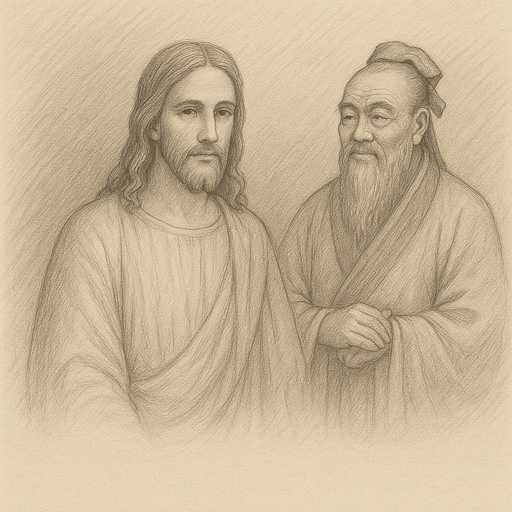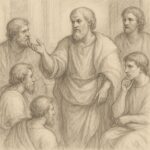Religion and philosophy aren’t really about getting a fixed message straight from some higher truth – they’re more about how people interpret ideas that feel meaningful to them. Over time, those interpretations shift, shaped by history, culture, and whatever society needs at the moment. That’s why two people can follow the same religion or school of thought but understand it in totally different ways. Whether it’s believing Jesus is divine or turning Confucius into a national icon, these ideas evolve because of how people choose to make sense of them.
Take Jesus, for example. He started off as a Jewish teacher who preached about love, forgiveness, and the kingdom of God. After his death, his followers believed they had experienced something powerful — that he had risen from the dead. But it didn’t stop there. Over time, as more people followed him, different groups had different ideas about who he really was. Some saw him as a great moral teacher or prophet, while others started calling him the Son of God. This wasn’t settled right away. In fact, it took over 300 years before the idea was officially locked in. At the Council of Nicaea in 325 AD, church leaders met to settle growing disagreements, and they declared that Jesus was not just sent by God — he was of the same essence as God. That idea, known as the Trinity, became core to mainstream Christianity. But it was a decision made by people, trying to make sense of who Jesus was through their own lens of faith, philosophy, and politics.
When it comes to Confucius, he wasn’t actually that famous in his own time — just one of many thinkers with a set of ideas. There were plenty of other schools of thought around, like Daoism, Mohism, and Legalism. But during the Han dynasty, the rulers found Confucius’ ideas about order, respect, and hierarchy really useful for running a stable society. So they promoted Confucianism as the official philosophy of the state. Over time, Confucius was elevated to almost legendary status, eventually being called the “Teacher for All Ages.” But again, that wasn’t how people saw him at the start — it was an interpretation that suited the needs of those in power.


